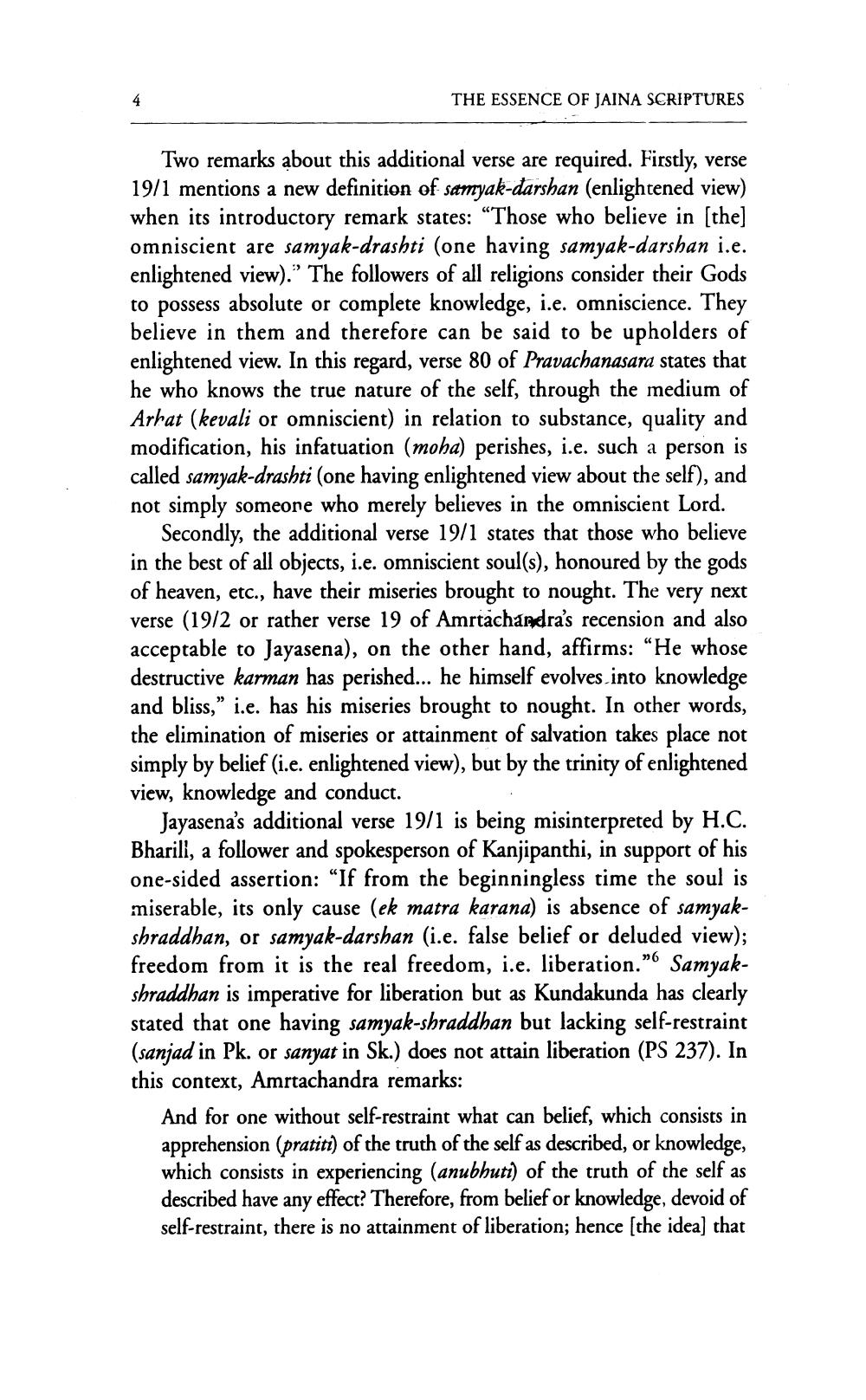________________
4
THE ESSENCE OF JAINA SCRIPTURES
Two remarks about this additional verse are required. Firstly, verse 19/1 mentions a new definition of samyak-darshan (enlightened view) when its introductory remark states: "Those who believe in [the] omniscient are samyak-drashti (one having samyak-darshan i.e. enlightened view)." The followers of all religions consider their Gods to possess absolute or complete knowledge, i.e. omniscience. They believe in them and therefore can be said to be upholders of enlightened view. In this regard, verse 80 of Pravachanasara states that he who knows the true nature of the self, through the medium of Arhat (kevali or omniscient) in relation to substance, quality and modification, his infatuation (moha) perishes, i.e. such a person is called samyak-drashti (one having enlightened view about the self), and not simply someone who merely believes in the omniscient Lord.
Secondly, the additional verse 19/1 states that those who believe in the best of all objects, i.e. omniscient soul(s), honoured by the gods of heaven, etc., have their miseries brought to nought. The very next verse (19/2 or rather verse 19 of Amrtachandra's recension and also acceptable to Jayasena), on the other hand, affirms: "He whose destructive karman has perished... he himself evolves into knowledge and bliss," i.e. has his miseries brought to nought. In other words, the elimination of miseries or attainment of salvation takes place not simply by belief (i.e. enlightened view), but by the trinity of enlightened view, knowledge and conduct.
Jayasena's additional verse 19/1 is being misinterpreted by H.C. Bharill, a follower and spokesperson of Kanjipanthi, in support of his one-sided assertion: "If from the beginningless time the soul is miserable, its only cause (ek matra karana) is absence of samyakshraddhan, or samyak-darshan (i.e. false belief or deluded view); freedom from it is the real freedom, i.e. liberation." Samyakshraddhan is imperative for liberation but as Kundakunda has clearly stated that one having samyak-shraddhan but lacking self-restraint (sanjad in Pk. or sanyat in Sk.) does not attain liberation (PS 237). In this context, Amrtachandra remarks:
And for one without self-restraint what can belief, which consists in apprehension (pratiti) of the truth of the self as described, or knowledge, which consists in experiencing (anubhuti) of the truth of the self as described have any effect? Therefore, from belief or knowledge, devoid of self-restraint, there is no attainment of liberation; hence [the idea] that




